Hidetaka Miyazaki interview: FromSoftware's president explores the unknowns of Elden Ring
Hidetaka Miyazaki on all things Elden Ring, from working with George R.R. Martin to dealing with pre-launch nerves

Elden Ring's creative director, Hidetaka Miyazaki, is hunkered down in his office at FromSoftware's Japanese HQ, bundled up in a black padded winter vest. Despite a perennially youthful face, his demeanour this evening is unmistakably sober, alert. Behind his desk are shelves lined with the colourful spines of books he has no time to browse, the gap between his shelves and the ceiling stacked with board games he has no time to unbox and play. Crunch is well underway. The game is on the cusp of launch, and pressure is mounting.
Miyazaki's crowning achievement up until now, Dark Souls, was recently honoured via public vote as The Ultimate Game Of All Time at the Golden Joystick Awards, besting nominees such as Super Mario 64, Tetris, and Half-Life 2. The Dark Souls franchise has sold close to 30 million copies, a surprising figure for a series that people continue to suggest, apparently without irony, caters to a niche audience.
Elden Ring not only has the potential to expand the ranks of the Dark Souls faithful, enlisting the worldbuilding talents of beloved fantasy author George RR Martin, it expands the design canvas of the Dark Souls franchise itself. Players lucky enough to land a spot in November's closed network test spent dozens of hours exploring it, and still flocked to YouTube and message boards to see what loot, bosses, and tucked-away caverns they had inevitably missed.
Interviews with Miyazaki tend to conclude with a similar pang. You arrive with a scroll of questions in hand, hoping to excavate the recesses of one of the most fascinating minds in game development. Yet when time runs out, you know there's a vast store of gold left behind, untouched. To our delight, this occasion is to be less constrained, and we are able to reach far into Elden Ring's corners. Plenty of freedom to roam and explore the creation, symbolism and design philosophy of FromSoftware's most ambitious work to date.
This article first featured in Edge Magazine. For more fantastic interviews just like this, be sure to check out subscription options at Magazines Direct to get industry-leading analysis delivered right to your door (or digital device) each month.
Creation
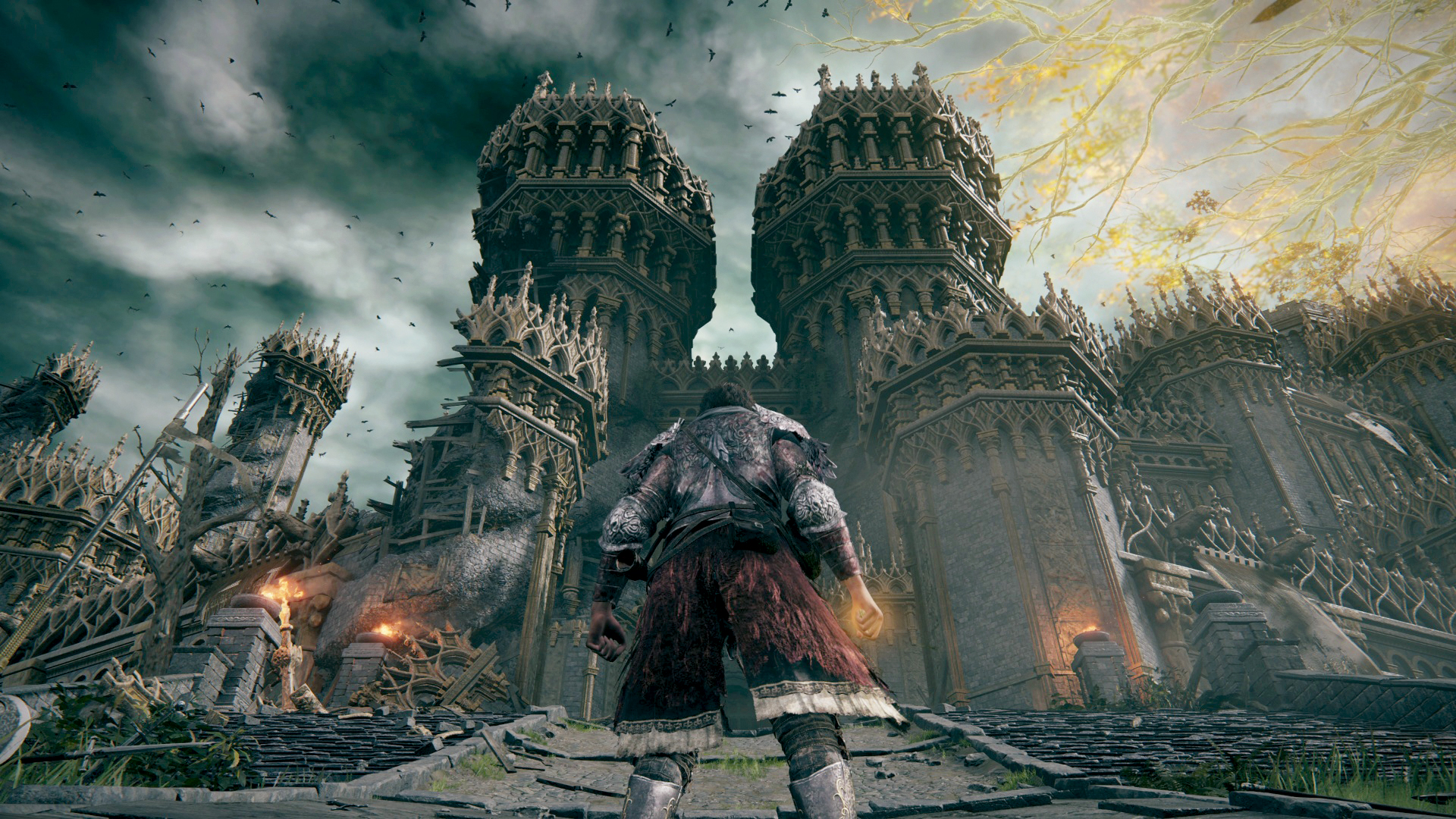
With the launch getting close, what's your state of mind right now?
It's not a pretty state of mind, I will tell you that [laughs]. This is a tough point in the development of any game, not just Elden Ring. At this point, this is when I really start to have regrets and doubts about releasing the game into the wild, and seeing what everybody thinks. I start thinking, 'I could have maybe done this better… I could have maybe approached this in a different way…'
Weekly digests, tales from the communities you love, and more
There's a lot of these thoughts that build up just on the cusp of a game's release that are involuntary and they plague your mind a little bit as you're finishing off work on the project. So it is quite tough. It's a tough time, and it doesn't get easier with experience. But particularly, looking at Elden Ring as its own piece of work, I'm really looking forward to people playing it and seeing how they react. It's a big moment in our development history.
What memories stand out from your first conversations with George RR Martin?
Yes, I have some good memories of those initial discussions. Not so much for the content but just the general feelings I had speaking with George Martin. He actually knew about the Dark Souls games. He was aware of them and what they were about, so that made me happy. That sort of gave me a little bit of a boost. I knew immediately from talking to him, it just became apparent his skill and his passion for the fantasy genre, and for games as well. There was a little bit of a generation gap between us, so I felt a bit apprehensive about going to these talks, but after a lot of these conversations, it was just like speaking with an old friend. And it just felt so fresh to have those conversations with someone who was so passionate about the same things, and to show that pure joy and sense of curiosity for these fantasy worlds. This was something that really captured my interest throughout all of our talks, and I was really thrilled to be working with him.
What were the environments for the initial meetings that took place?
It was usually us going to America and to his hometown or base of operations. I think it was a hotel where we first sat down and spoke. It was us going out to him, to his home turf, and having these kickoff conversations with him there in person.
What can you tell us about the creative brief you gave him before he set to work on the foundational parts of Elden Ring's backstory?
Early on, we established a very good level of respect between each other, both in our personalities and the sort of work that we do. And this was really important in establishing that foundation for the game because Mr Martin respected the fact that we didn't want him to write the game's story or the in-game text. Because we felt like that would actually limit his creative output, and if it was limited to something that was already a game or already a concept in this way, then it would limit the inspirations we could possibly get from him. So we established very early that he would be writing that foundation, that historical element to the game, something that took place long before the events of the game itself. And this way he was able to much more freely flex those creative muscles and provide something that wasn't restricted.
We started off by giving him these very vague and broad themes and ideas for the mythos that I had swimming around in my head, along with what kind of games we typically make, and the sort of themes we'd like to explore in our games. So it was all very loose and quite vague. Then he would come back to us with a lot of ideas: how about this, this, and this? That back-and-forth started the exchange of ideas.
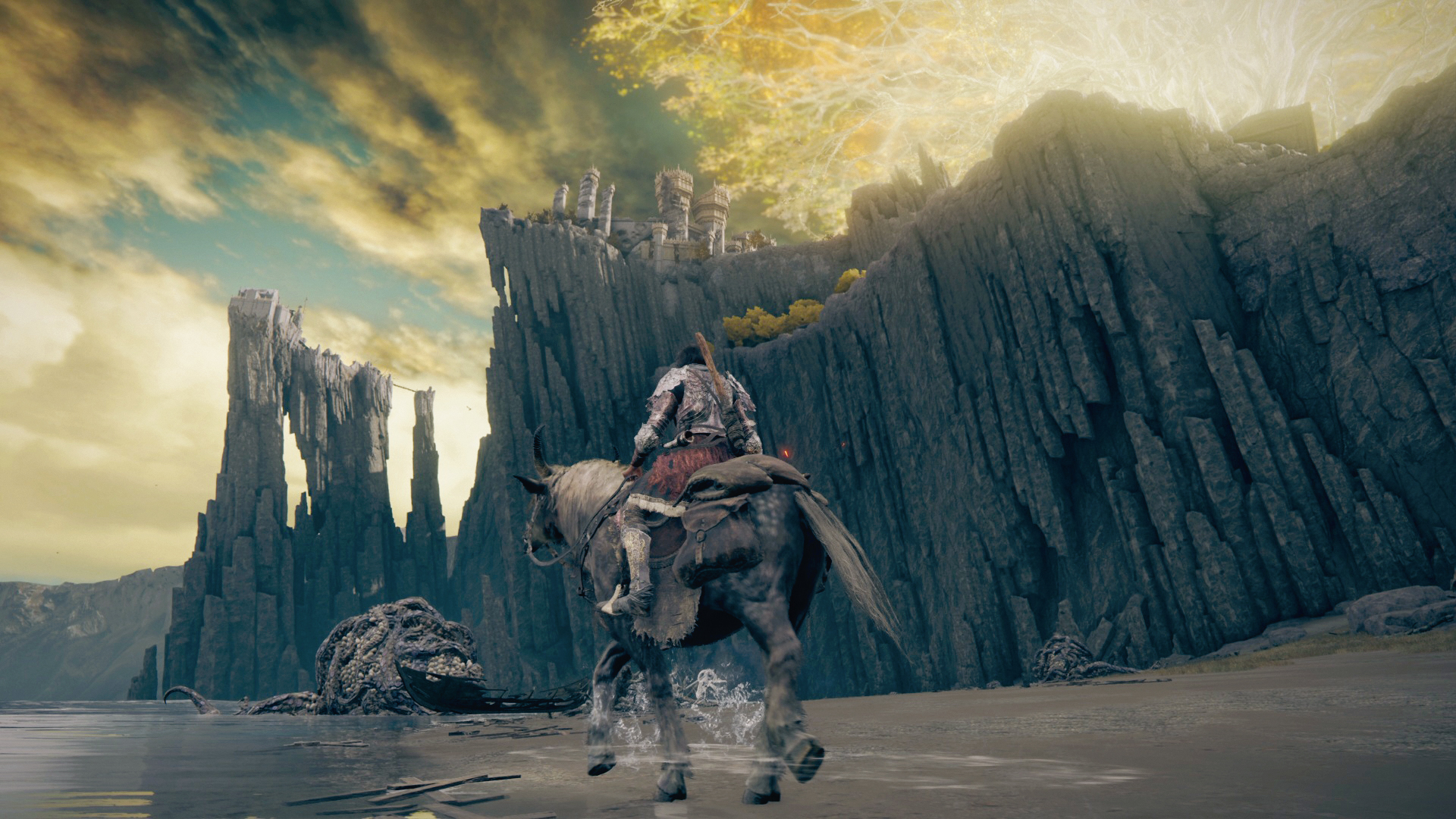
"The level of freedom that we wanted to ultimately achieve in Elden Ring exceeded what we were initially planning for"
What form did his Elden Ring mythos take when it arrived with you? Short stories? Character sketches?
There was nothing visual – it was all text. Rather than being a short story, it was something that depicted the setting or set the scene for the game and for the world, detailing the flow of history and the figures who appeared throughout it. There was, of course, a story that came with this as a sort of backbone, but it played as more of an introduction to that world and a natural course of events for these characters to follow. And this is what was given to me and the team, and then we were able to interpret this in our own way and provide the visuals to go along with that, and to build that into an actual game. A lot of the motifs that came from this and drove my creative thinking behind these elements in the game were connections between people, including parent-and-child relationships. A lot of the issues that Mr Martin dealt with in his writing provided these motifs for the game itself, so that is something I am very grateful for.
In the past, you've mentioned British fantasy literature being a touchstone for Dark Souls – were there any books, or even films, that were inspirational in creating Elden Ring's world?
It's difficult to give any one single inspiration that had a major impact on Elden Ring. There have been a lot of different works that influenced the creative process in various ways – The Lord Of The Rings, The Eternal Champion series of novels by Michael Moorcock, aspects of tabletop RPGs such as RuneQuest, etc. There are a lot of motifs and themes that I was able to pick from these various works that had an effect on the development of Elden Ring.
The biggest departure from the Dark Souls series is that I had this constant source of inspiration and impetus from George RR Martin and the mythos he had created. This probably had the largest impact on the game just because it was an approach I hadn't used before. It allowed me to draw lines connecting the history in this new mythos and build up something very fresh. It provided a lot of motivation and a great, constant source of inspiration.
Your office appears to be full of creative inspiration – and other things besides.
I have a fridge. I have books. I have games. I basically live here [laughs]. With this peak period of any project, what I like to do is retreat into my office, knuckle down and surround myself with these inspirations and these stimuli – just bury myself deep into that creative aspect of it. This place has everything I need, besides a bath, so I'll go home to take a shower or a bath [laughs]. But other than that, especially with COVID and the current remote-working situation, it's been very easy for me to just lock myself away and dig down into that creative aspect, especially at this peak time of development.
What can you tell us about Godfrey, who featured on the cover of Edge's Elden Ring edition?
When we were talking with George Martin, we had these themes and ideas for creating pieces of artwork for the bosses, for these core characters of the story. And when he wrote the mythos, we asked him to create these dramatic heroes of this ancient mythos that takes place before the events of the game. These dramatic and heroic characters weren't really present in our previous titles, so this is something that was really appealing to me – how he would depict the mystique and heroic qualities of those characters. And Godfrey is sort of an embodiment of that. He's one of the major players in the game.
One of the motivations of the player character in Elden Ring is to become Elden Lord – they're to journey to The Lands Between and become the next Elden Lord. In the sort of heyday of the Golden Order of The Lands Between there were two Elden Lords, and Godfrey was the first of these. He was the very first Elden Lord and was married to Eternal Queen Marika, who's been detailed in some of the lore we've released publicly so far. And he was representative of this period of grandeur and affluence. He represents everything great about the Elden Ring and about The Lands Between at that time. Eventually, he was exiled from The Lands Between. He himself became tarnished and he shares this deep connection with the Tarnished – the player character. Godfrey is an embodiment of their long history and struggle. He represents a lot of what the player character stands for and he symbolises a deep connection with the player – something that used to shine brilliantly and has now become tarnished and fallen from grace.
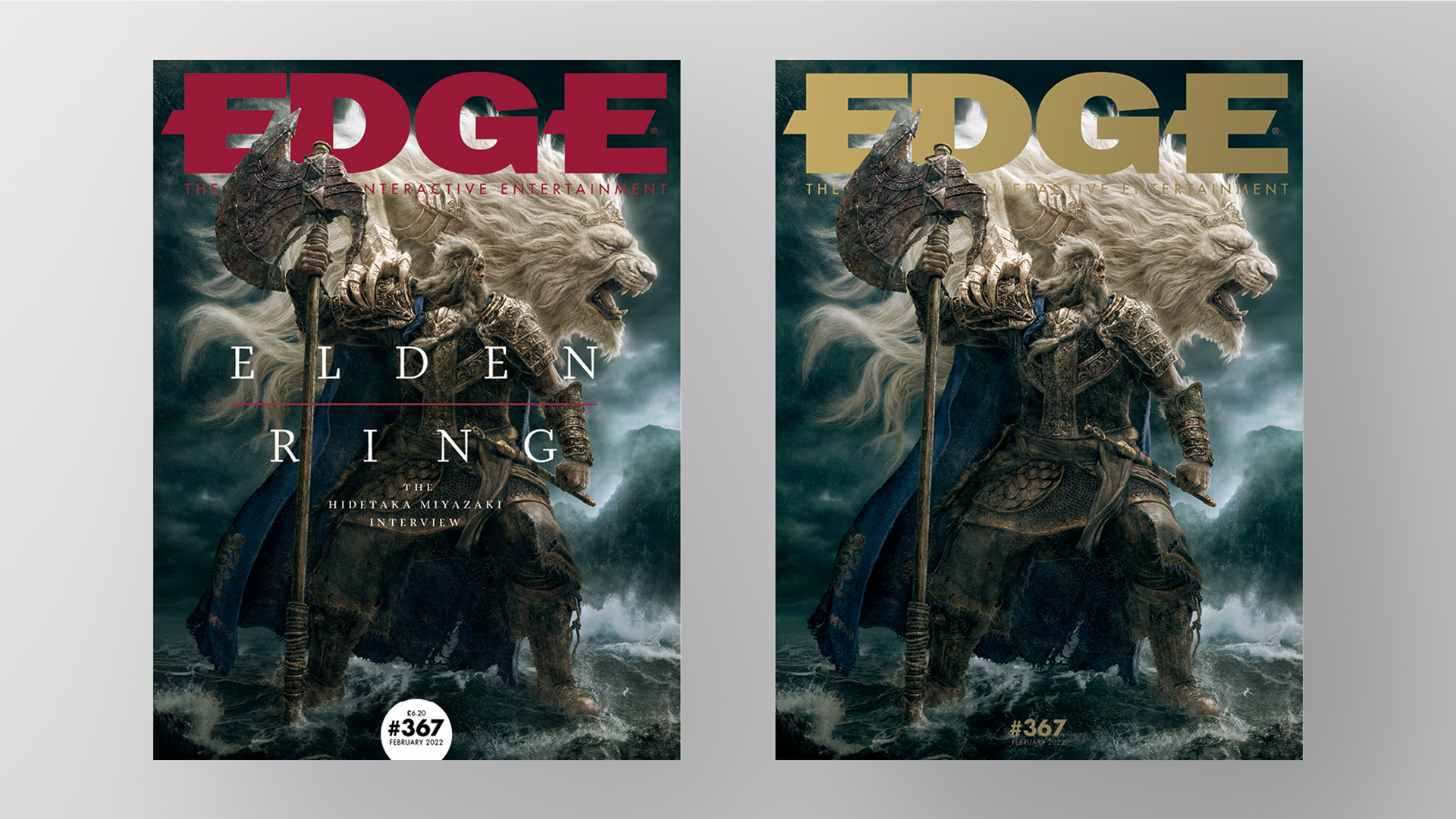
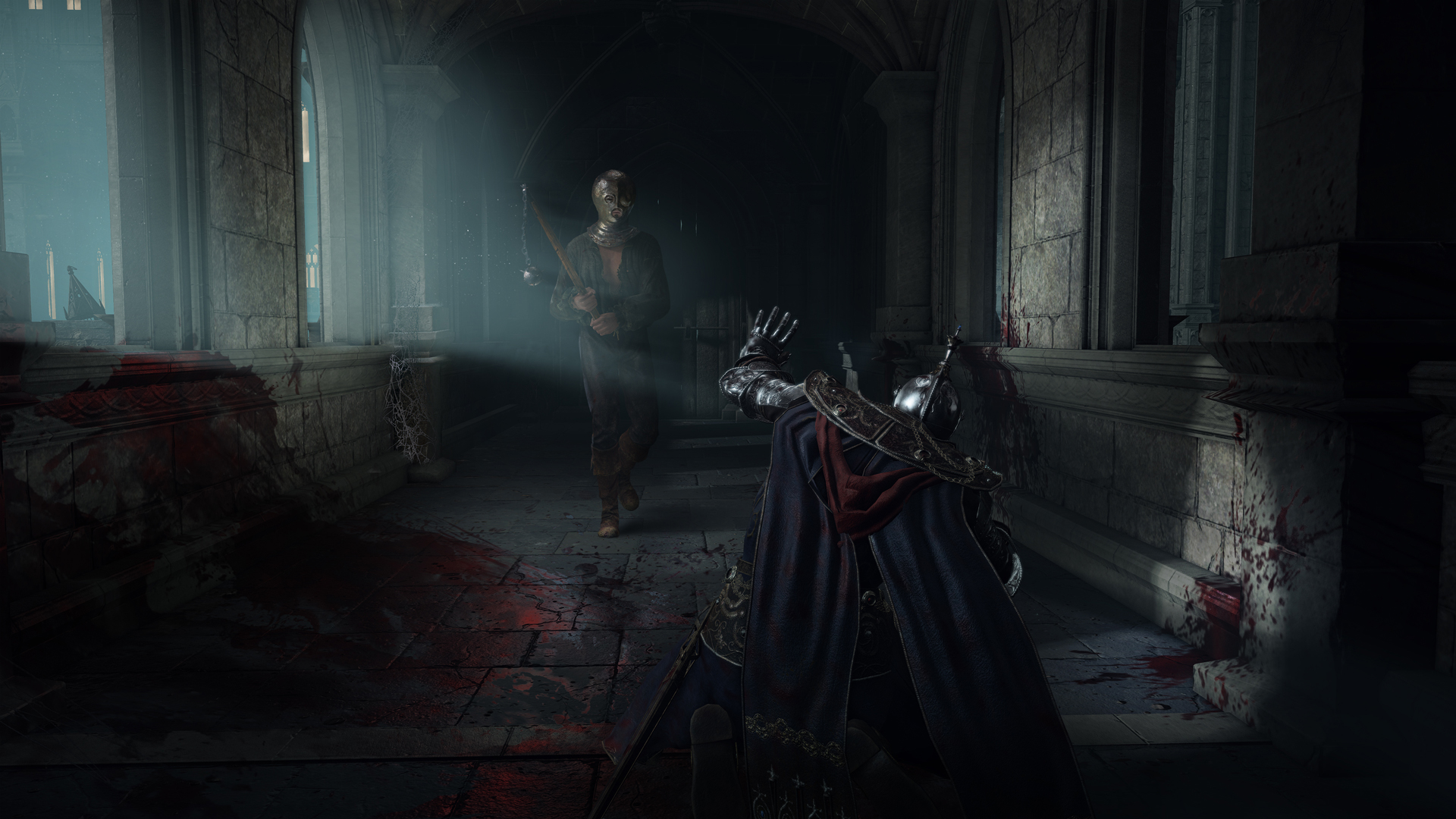
FromSoftware has been making stepwise progress toward Elden Ring's calibre of open-world immersion for over a decade. Miyazaki and his team have done this by gradually peeling away the contrivances that games have been forced to rely upon to work around their technical limitations. The method by which players access the unique locales tucked behind Demon’s Souls' Archstones wasn't fundamentally different from selecting discrete levels from the overworld map of an 8bit classic such as Super Mario Bros 3; in contrast, observe the way that Elden Ring removes the fog-gate contrivance from its boss encounter with Flying Dragon Agheel. As you gallop across a waterlogged marshland in central Limgrave, an orchestral prologue breaks the silence. Then a guttural screech from overhead as you notice the scaly menace soaring to earth, shaking the earth as it touches down. Only then does the creature’s HP bar appear onscreen. Elden Ring doesn’t just contain magic; in places such as this, its execution feels like a feat of magic in itself.
There are tentacle motifs across the blade of Godfrey's poleaxe, which suggests a connection to the ocean – is that a part of the world we can expect to navigate in the finished game?
What I will say is that he's a character with a major presence in this story. And he represents not only a great part of the player character's role but also a large part of the world and its history. And so, without spoiling too much, I just want to say, as a character that represents so much of the game, he's definitely one who I find very appealing and very attractive in that sense. And I think there's a lot to explore there for the players once they play the game, and they see the sort of presence he has, and they figure out how deep his tale goes.
When a ring of power is mentioned in a fantasy context, it's impossible not to think of Tolkien's famous One Ring. It's striking that when you cast the Holy Ground skill in Elden Ring, a cursive script appears on the ground that resembles the Elvish writing he devised. Is the script used in Elden Ring an actual tongue that was developed for the game, or is it a design motif without any literal translation?
As a theme or inspiration, this is something that could have potentially been tied to Elden Ring by observers, but there is no direct link to The Lord Of The Rings or any of Tolkien's work. In terms of conceptual differences, whereas the One Ring is something that actually physically exists and fits on your hand, the Elden Ring is more of an abstraction. It's a representation of something metaphysical. So there's not a direct link between Elden Ring and inspiration from the One Ring and Tolkien's works.
In terms of actual scripture and language used within the game, there's actually several of these kinds of runic characters or scriptures used by various factions and powers. [The Holy Ground script] actually represents one of those factions – the Two Fingers – rather than being a direct representation of the Elden Ring itself.
Elden Ring's cover artwork features several overlapping golden circles – do those shapes have anything to do with the different factions you're describing?
The rings that you're looking at in the logo are not so much a representation of those factions, as you put it, but more a representation of the law of the world, the rules and the order. This Golden Order is something that the Elden Ring may have once represented, but not directly. It's more about how you apply those rules and how you enforce them on the physical world and what effects they have on it. So it's more the influence of these demigods that existed a long time before and how they applied these concepts of order and discipline. That's what's being represented by the Elden Ring and these overlapping and intersecting rings. It gets a little bit more complicated than that, but I'll leave it there for now [smiles].
Construction
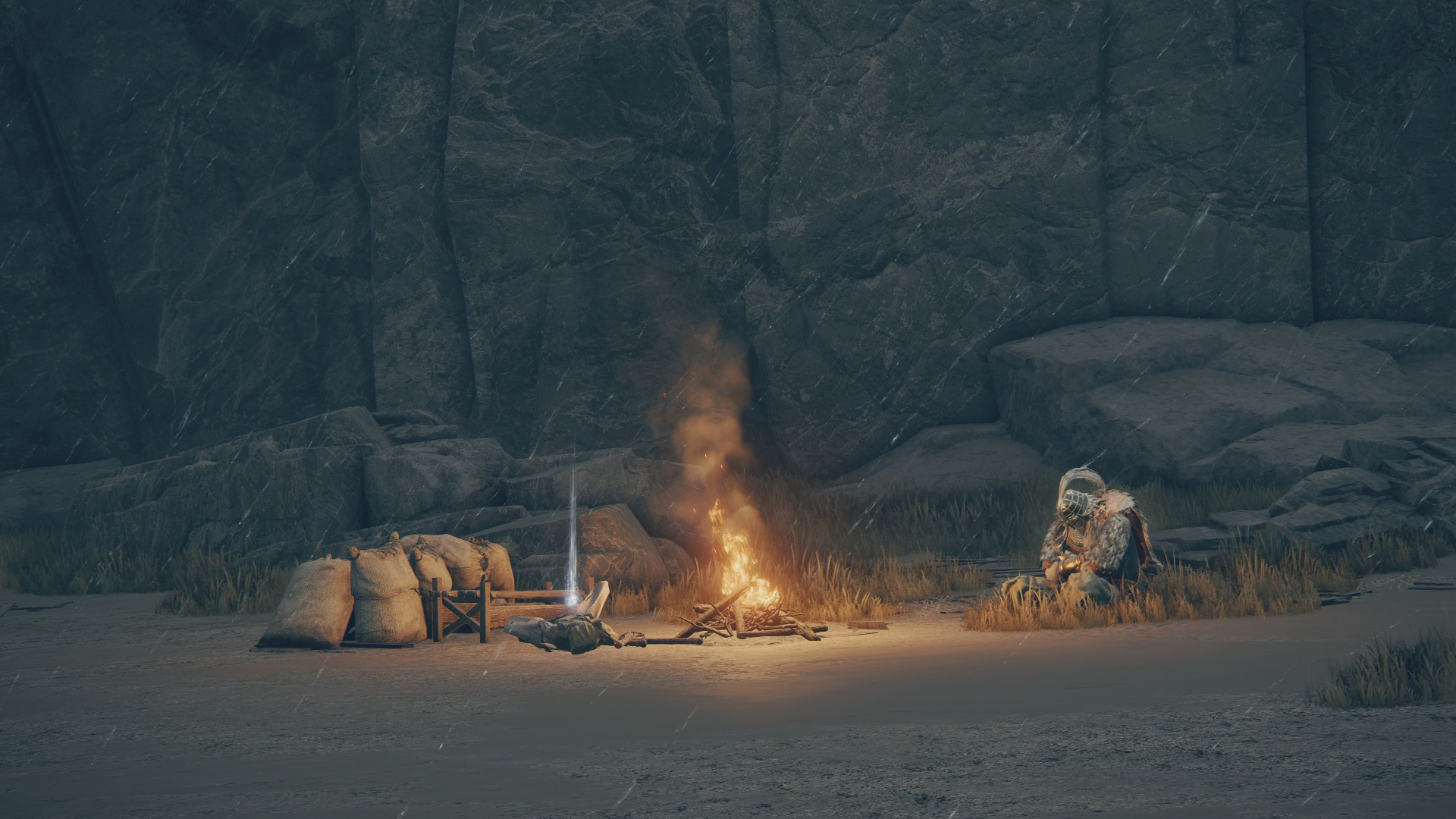
Let's talk about Elden Ring's development. When you're building a play space as vast as The Lands Between, how do you begin breaking down that task into manageable chunks of work?
It was a challenging process because it was, of course, our first experience creating a world of this size, on this scale. So we don't know if our approach was the right one, but we generally approached it with the same strategy we've used with all of our games up until now, in the physical sense of how we lay it out, and how we break it down as a game world. And then, throughout development, it just depends on what the game needs and our requirements and conditions for the game and how it takes shape.
We always have to put the game first. We have to draw out the essence of the map; we have to draw out the elements that shape it and that are going to benefit it for the sake of the game.
So our general approach there did not change except for the sense of scale, which was of course magnified. One of the benefits of the increased sense of scale and this new format was that it actually allowed us to convey a lot of these details and elements that we maybe couldn't before on that smaller scale. So that was itself both a challenge and a blessing because it just allowed us to do so much more.
What prompted the decision to push back the game's original release date?
The level of freedom that we wanted to ultimately achieve in Elden Ring exceeded what we were initially planning for. This [complexity] gradually built up, and the time needed to debug and QA in particular took a lot more effort.
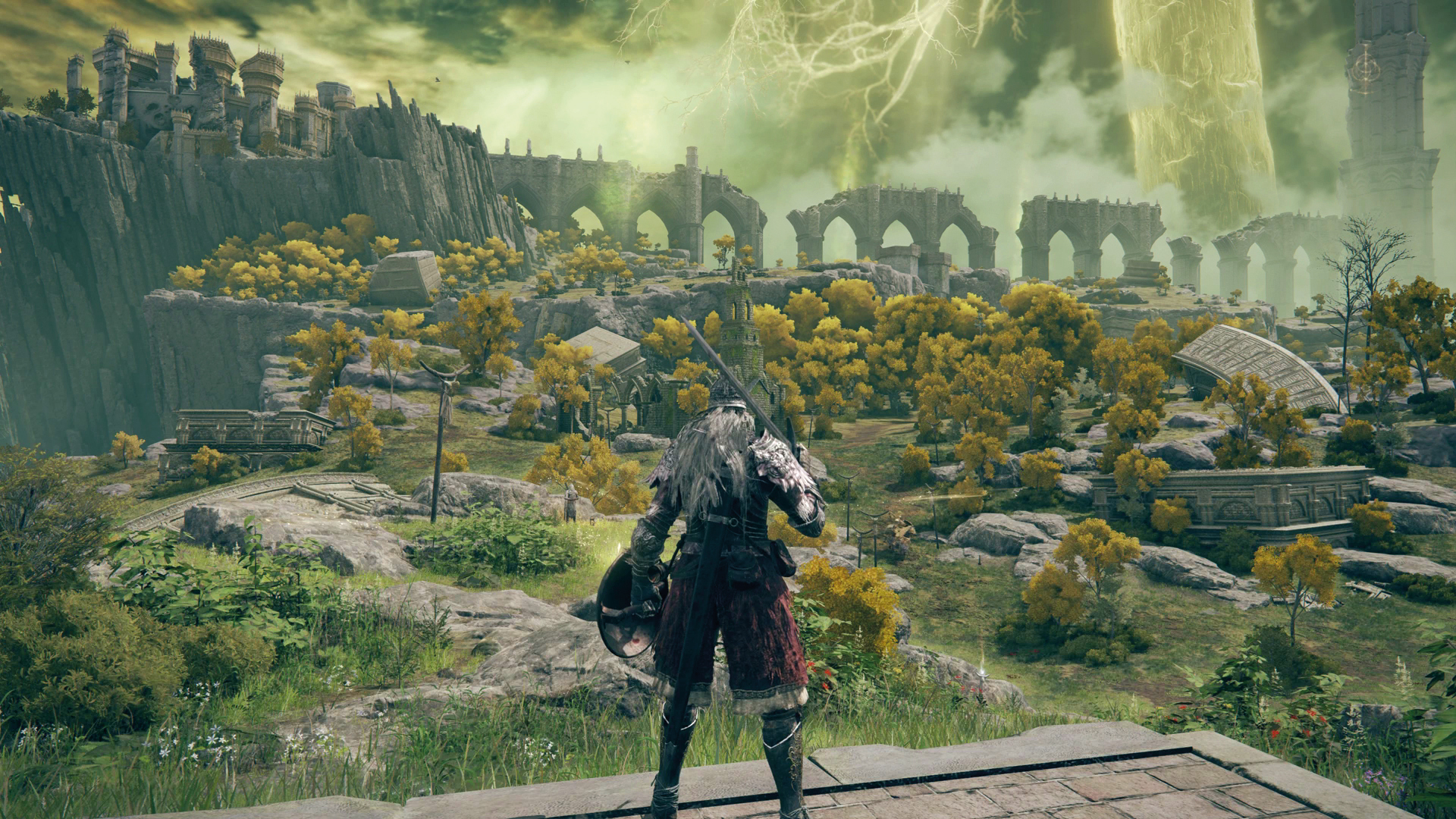
"Elden Ring is based on a culmination of everything we’ve done with the Dark Souls series and with our games thus far"
Given the scope and complexity of the project as a whole, were there any particular mechanics or gameplay systems that were particularly difficult to get right?
There were a number of challenges that, of course, came with the scope of this game and of the world. There are a lot of areas in which we've had to use trial and error since creating the Dark Souls series, iterating on those mechanics and formulas, expanding on them in this new sense of scale. A lot of it was related to the game tempo – the rhythm and the flow of the game, to keep the player from getting bored, to keep them interested, exploring, and having fun. And, of course, in this brand-new huge world that we've created, we wanted to prioritise that fun and level of player freedom more than anything. So with that comes a lot of characters, a lot of events that you're trying to incorporate, and you don't want anything to tread on the toes of anything else – you want it all to mingle and to mesh nicely with the player and their own motivations as well. But you want it to be there, and you want it to provide that stimulation for progressing forward and exploring. So that was probably one of the biggest challenges.
Given that an open-world game requires more visual assets than your previous projects, did you have to expand the team considerably? Or was it more about leaning on outsourcing partners for assistance?
Yes, of course, both the team's scope and our outsourcing needs increased with the scope and scale of the world and the content required to fill it. But we managed to explore some new systemic procedures as well that allowed us to fill out the world in ways that didn't require people to always be hands-on and do it manually. So there were a lot of ways in which we were able to use not only our existing team, but expand our skill set in that sense, and to apply it to this new challenge with this new world.
A simple example would be the creation of something that exists in vast quantities in the world, such as trees and vegetation. A lot of this we could employ using a more procedural system for vegetation to generate trees and handle their placement – that accounted for about 80 per cent of that task, and then our artists would go in and sort of add the finishing touches by hand. So this was a really nice new workflow to work with.
Conquest
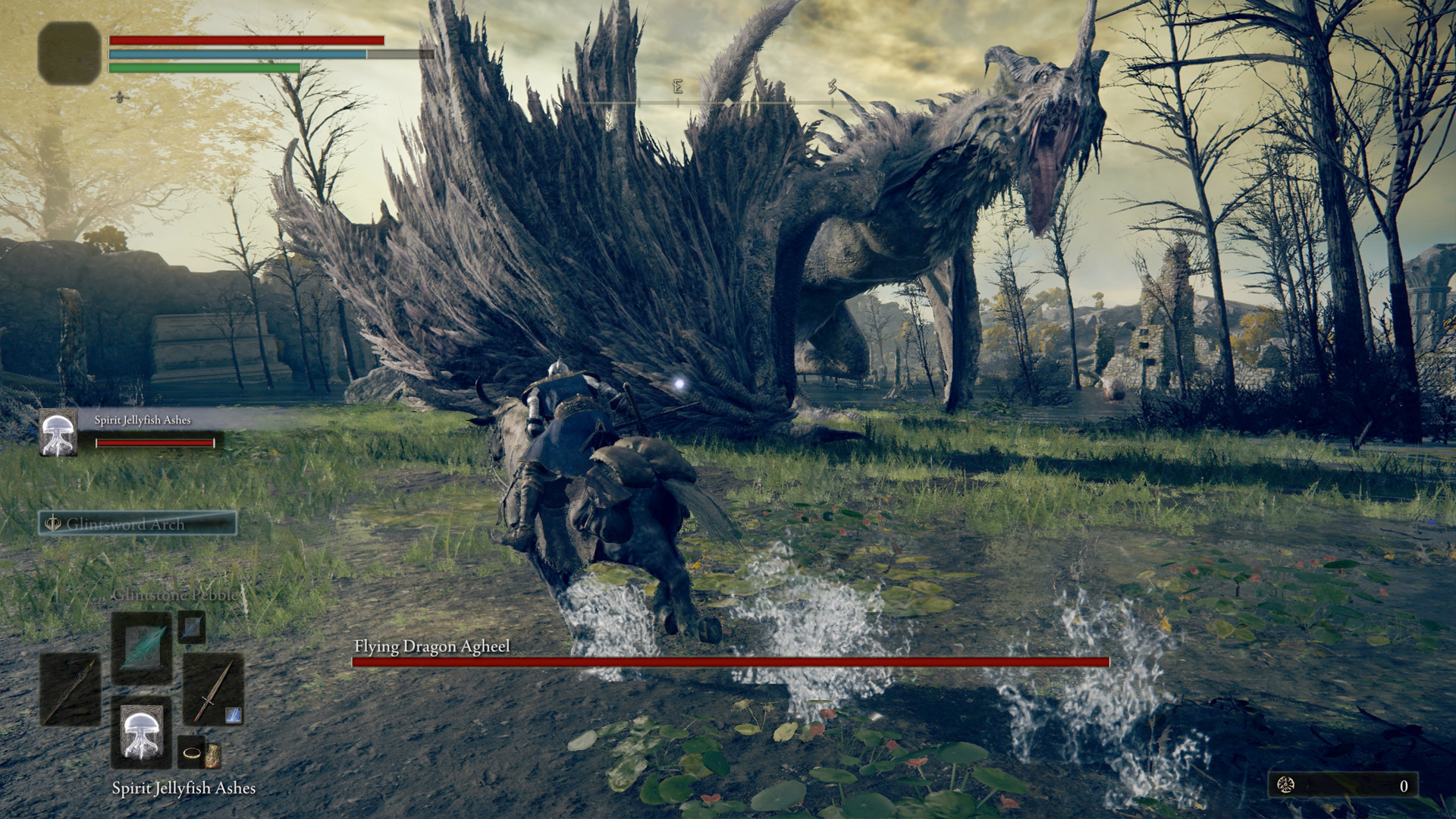
Given the challenges presented by the pandemic, how did you navigate the transition to remote work without the game suffering?
Yes, especially in the beginning, everything changed. And it would be false to say it didn't affect Elden Ring's development in any way – we had to change how we approached a lot of the aspects of game development, including communication, which was obviously a big part of it. It was a big challenge to adapt at first, but we succeeded thanks to the team. We were able to push through those hardships, especially initially, and figure out how we could handle development in this new situation thanks to our staff and teams who handled the setup of the new infrastructure. They made it possible to work smoothly and comfortably within those limitations – it's definitely all thanks to them.
A lot of the staff and I are OK with working and communicating remotely. You know, we have a sort of culture where we've had a lot of experience with just speaking remotely or across emails or phone calls or video chats and things like that, so it was just a case of expanding on this and making it more of a company-wide practice. A lot of that experience played quite well into how we had to adapt during that difficult time.
You've mentioned previously that in Elden Ring you wanted to create a new dark fantasy action RPG full of things that you weren't able to realise in the Dark Souls series – what kinds of things, exactly?
I think it would be good to rephrase my previous comment. Elden Ring is based on a culmination of everything we've done with the Dark Souls series and with our games thus far. That's the best way to look at it. So it's not necessarily about what we couldn't do then that we could do now, it's more about what Elden Ring has allowed us to do thanks to the experience of developing those games. So in that sense, it couldn't have come first. But there's a lot of different things with each of these games, and Elden Ring represents the culmination of all of that knowledge and experience coming together. And that creates a brand-new whole that wouldn't have been possible before.
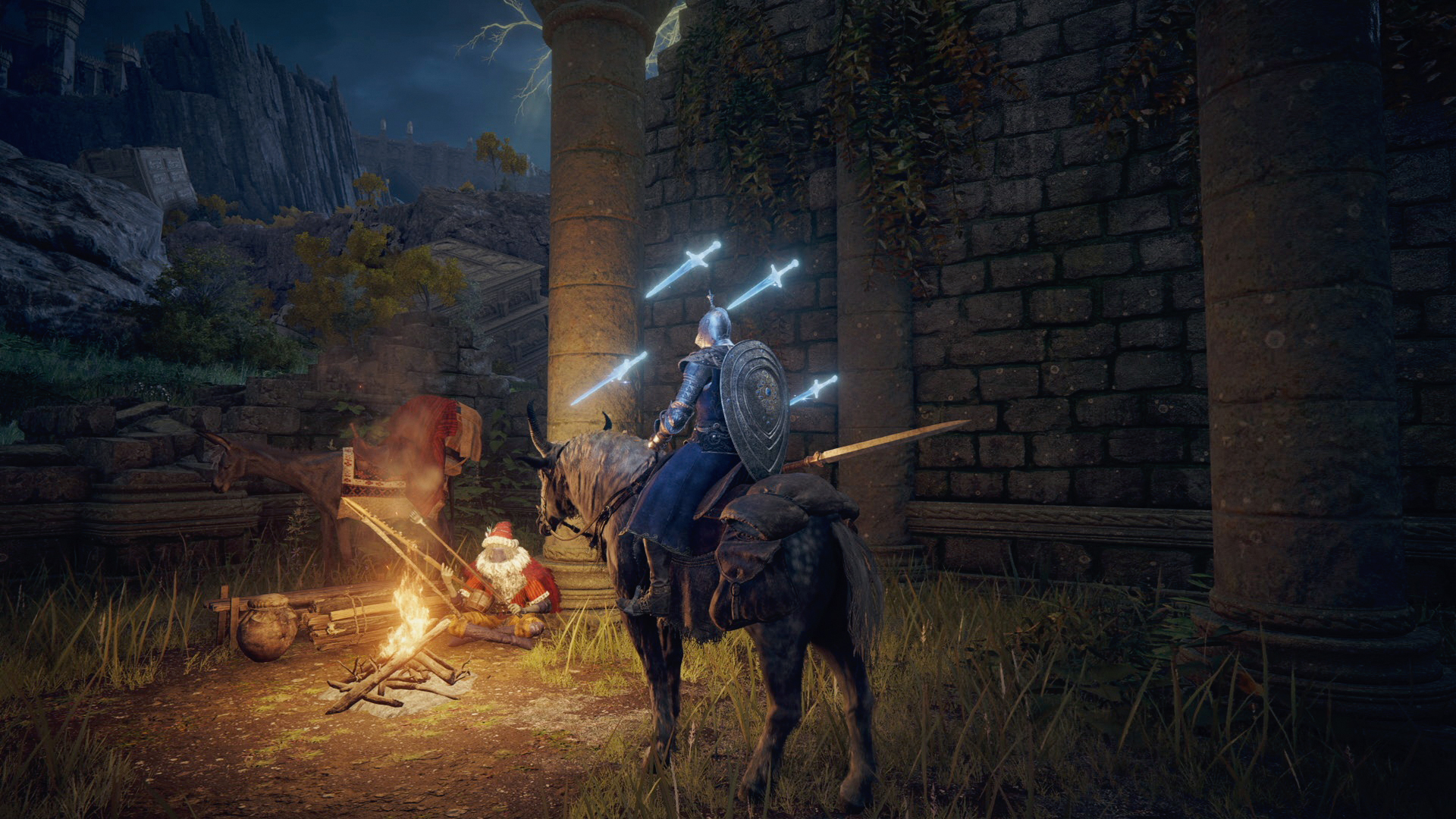
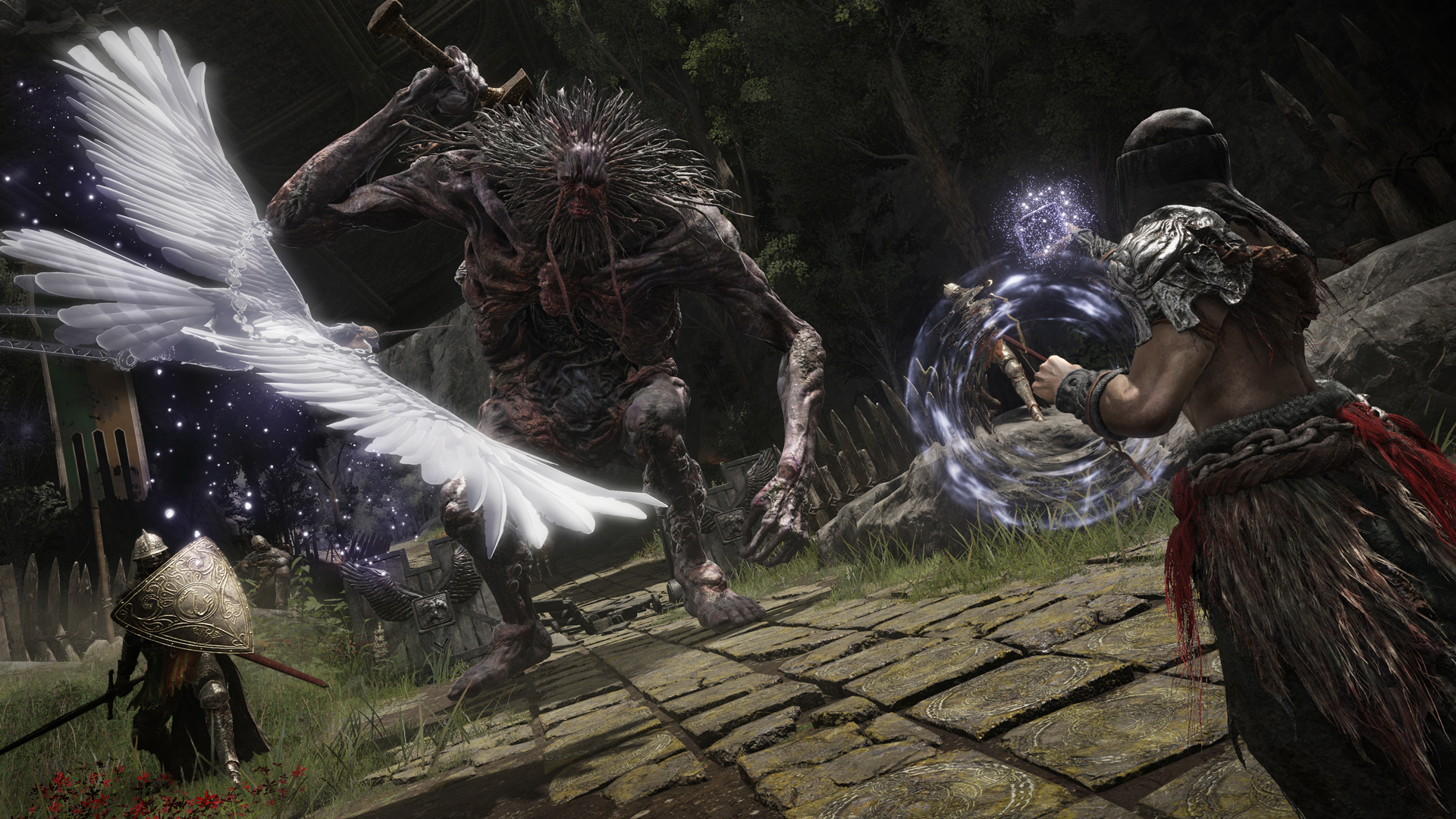
The commercial imperative of making a game that appeals to the widest possible audience would seem to be incongruent with the Soulsborne formula of demanding players achieve technical mastery or die – and die and die – trying. The closest thing to a conventional easy mode in the Dark Souls series has always been the magic build. Like bringing a gun to a knife fight, there is a guilty pleasure in spamming Soul Arrows from range while a hollowed undead stumbles in vain toward you, unable to close the gap before dying. Elden Ring offers an even wider tray of options for the cheese connoisseur who finds close-quarters combat overly stressful. While perched atop Torrent, gallop within range of an earthbound footsoldier and let the magical blades of Glintsword Arch auto-track your enemy like a pack of swarming missiles from an attack helicopter. Or use Lone Wolf Ashes to summon three phantom wolves to tank for you while you hack at the boss’s flank. Or don't. Elden Ring builds upon Dark Souls' casting crutch, allowing you to scale your difficulty dynamically based upon how many aids you enlist at any given time.
Demon's Souls was the start of that journey for you, of course, and we've since seen it rebuilt by another developer, without your direct involvement. What is it like to experience the re-release of a game you originally worked on over a decade ago?
As you say, I was not directly involved in it, and I haven't actually played the Demon's remake. But this is because I just don't enjoy playing the games that I've made in the past. It brings up a lot of old emotions, a lot of old memories, and this gets a little bit overwhelming, and it doesn't feel like playing any more. So I have not played the Demon's remake, but I am very glad to see it get this fresh look, these brand-new current-gen graphics. It was an old game, so to see it get remade in this way and have new players playing it was obviously something that made me very happy. It was a rough game back in the day, with a relatively rough development, so I was anxious that new players would not enjoy it in that same way. That was a cause of concern for me when it was re-released but, you know, in the end, I'm just happy to see the reaction and happy to see people enjoying it.
One thing that was really fun was seeing [Bluepoint Games] come up with things we didn't consider and to approach certain elements of the game – its visuals and its mechanics – in a way that we either couldn't or didn't back in the day. So to see them researching and applying these new thought processes and new techniques, this was something that was really exciting and interesting for me.
Did the graphical fidelity of the Demon's Souls remake create extra pressure within the Elden Ring team, given that the games will sit side by side on PS5?
Yes, I'm pretty sure our graphics-creation staff felt that pressure more than anyone else. And not just with Elden Ring, but with all of the games we make. Graphical fidelity is not something we put as the top priority. What we ask for on the graphics side depends on the systems and requirements of the game itself, and it takes less priority compared to the other elements of development. So this is always an area where I feel a little bit apologetic towards my graphics team because I know they work extremely hard. And they've worked extremely hard on Elden Ring – our graphics-systems team and our programmers have been pushing a lot of new features to create the best-looking game we've ever made. But, you know, for me personally and for our games as a whole, it's not the number-one priority.
With Elden Ring benefitting from the lessons taken from all the games you've made over the past decade, do you feel it's FromSoftware's best game to date?
That's a difficult question. We are always trying to top ourselves and make the best game we can, and make our best game to date. It's not just limited to Elden Ring, of course – it applies to all of our titles. And I said it before but Elden Ring would not have been possible without that culmination of experience, the know-how from development of previous titles, and of course our talented team that has grown throughout the development of those projects. It's safe to say that we could have only made Elden Ring now, after all of that. So in that sense, yes, I believe it will be our best to date.
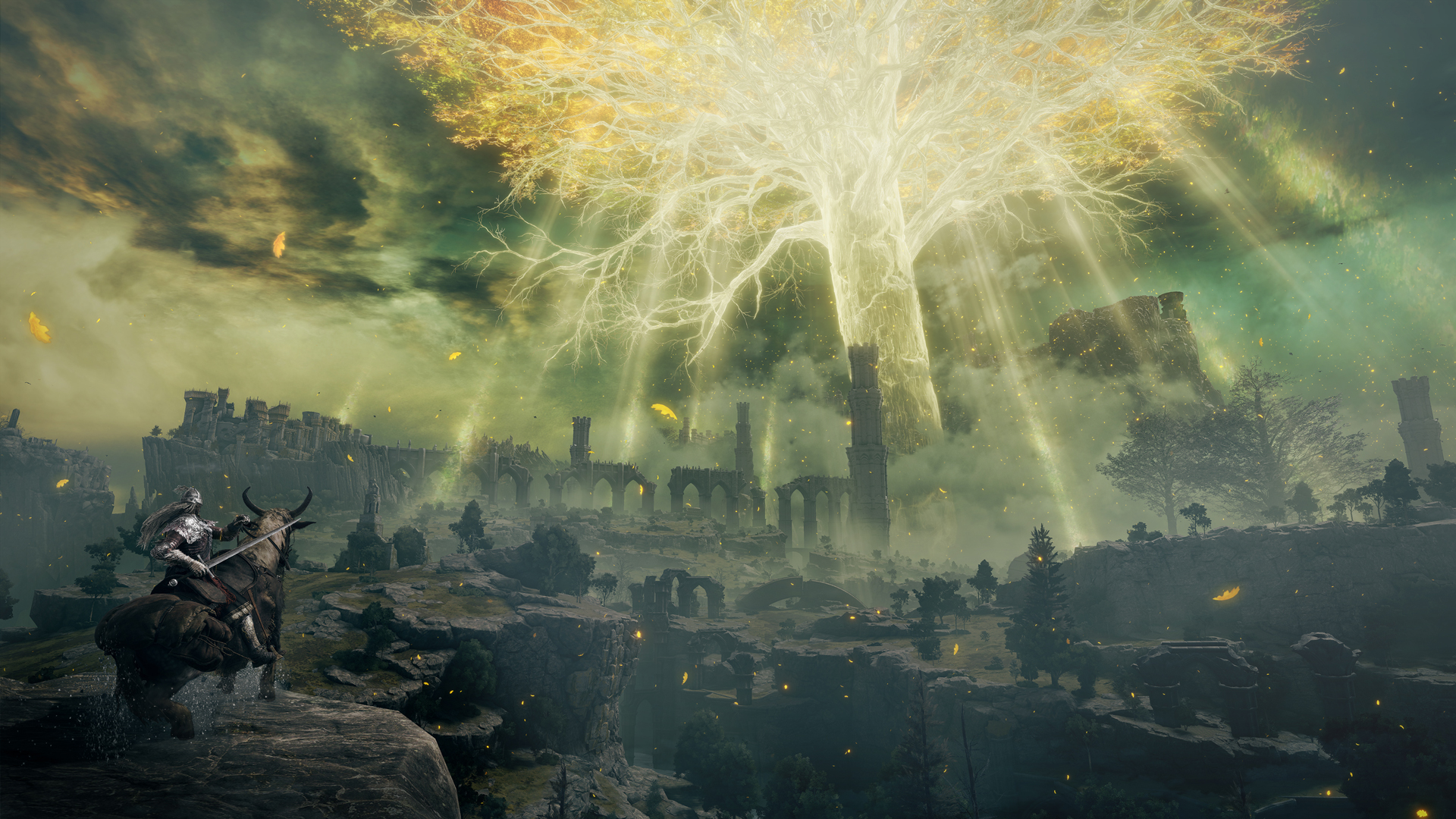
An Elden Ring social-media post stated, "Like the Erdtree itself, a Tarnished's path reaches up to the branches of the heavens and twists down into the roots of the earth." Dark Souls' game world had a surprising vertical span, from lava pits deep underground to the clifftop city of Anor Londo – will Elden Ring be similar in that regard? We've noticed item descriptions tease us with the prospect of an 'Eternal City' underground as well as a 'Temple in the Sky'.
Yes, those places referred to in terms of the depths and the heights of the world will be places you can actually explore. We wanted to create this world that was full of the joy of exploration of the unknown. So we wanted to create lots of enticing things for the budding adventurer. And we wanted to prepare lots of these mysterious situations that players would read about or hear about and want to go looking for and want to go exploring. Variety is something we strived for when creating this game, and something I believe we've managed to achieve.
On the topic of the Erdtree, literal and symbolic trees figure prominently in many of your games. Why does the concept of the tree have such a strong grip on your imagination?
In Dark Souls, the tree motif was present, but fire was the most distinctive visual element of that game. And for Elden Ring, the tree is obviously more apparent in that respect – the Erdtree. I don't want to go into too many details for fear of spoilers, but it does get nice and complicated. There's a lot to explore here, I feel, and people who are that way inclined are really going to get something out of the game.
First of all, just as something that's visually striking and enticing on the screen, in the world itself, something that draws your attention, something that stands out, this tree with golden glowing leaves is something that fits my ideal for something that represents the world physically. It's something that burns that image into your mind, but it also stands as something that represents those rules and an order of the world that we talked about earlier.
What can represent these rules and order but also not be absolute? That was the question that ran through my mind when I created this image. And the tree really fits the bill nicely for that because the tree is something that's alive, it's something that grew, it's something that will eventually wither and die. And this really fits the role of something that can then bestow this order, control these rules, and enforce these rules on the world. Because these too are things that will grow and will change and will wither and die as well. So I feel that the tree this time is something that fits those elements both visually and thematically. But saying any more than that would definitely go into spoiler territory.

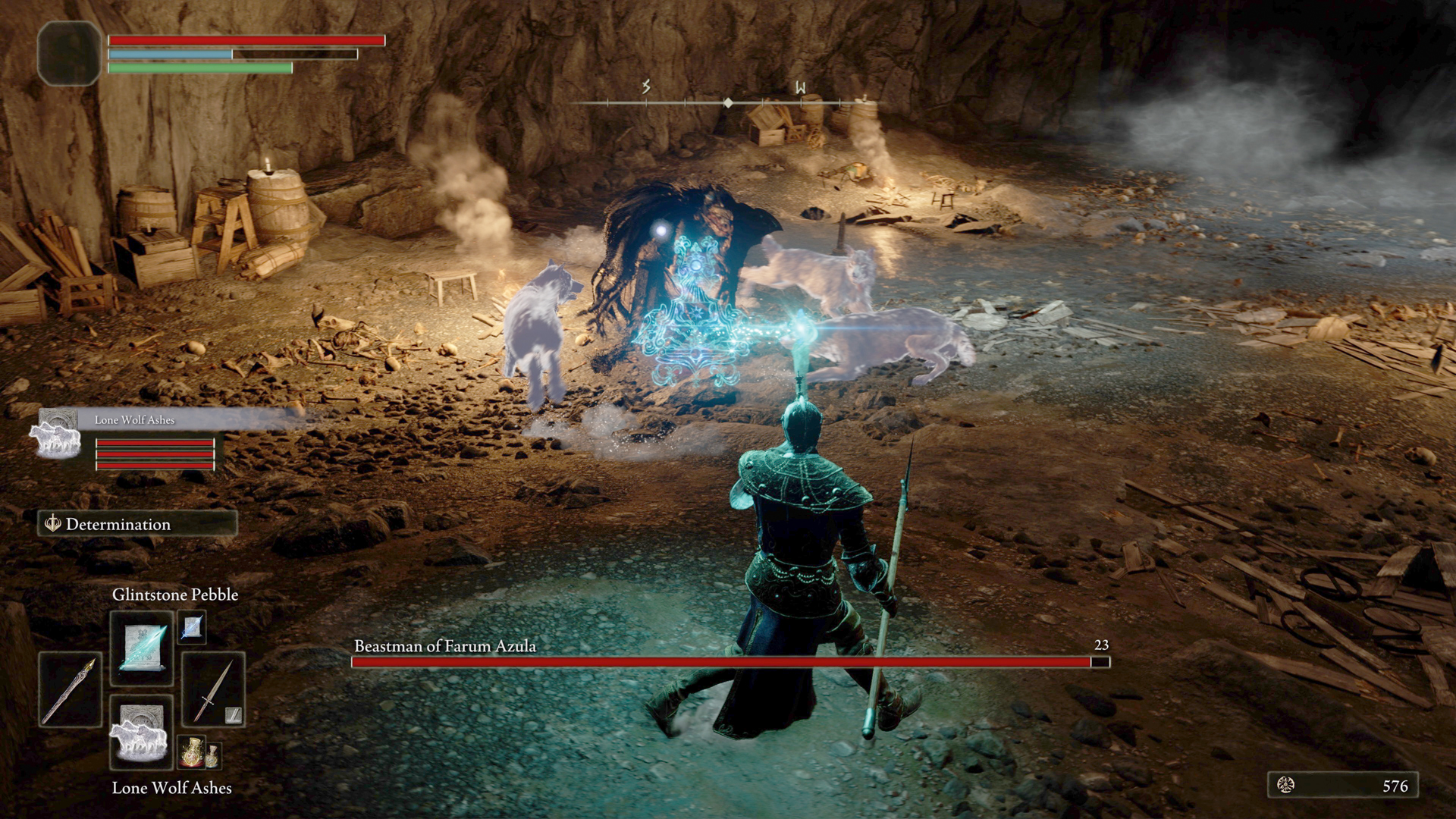
Though Breath Of The Wild inspired awe with its bristling grassy plains and beckoning faraway peaks, the existence (and necessity) of its paraglider testified to how much of the game's sprawl was content to remain flyover country. And the emptiness of Fallout 3's Wasteland was at least thematically appropriate given its post-nuclear predicament. The density of Elden Ring's world furnishing, by contrast, boggles the mind. The Lands Between pulse with life, the drama of a world teeming with motion prior to your arrival. You join in medias res. The fine-tuned pacing of Elden Ring's exploration, discovery and conflict cause the hours we spend with it to evaporate as if minutes. It's not just that engaging moments are packed tightly together; it's the wider spectrum of variety and duration. Groveside Cave consists of a glorified antechamber, a small pack of wolves, and a boss arena. If action RPGs can have minibosses, then why shouldn't they have mini-dungeons as well?
Considering the title of the game, it's a surprise that rings aren't wearable items, especially given that historically they've been quite important in the Dark Souls games.
There are a couple of reasons for this choice. The first is that, yes, we explored rings as equippable items a lot in our previous games – Dark Souls, particularly – and so talismans this time allowed us to approach those ideas in a different way, with a greater variety of designs. And the second reason is that, of course, rings do exist as physical 'finger rings' in this game, but more as unique items that are involved in the story and unique character events. So we wanted them to have a special positioning within the world of Elden Ring and also to be something different from a design standpoint in relation to the talismans.
Mounted combat on horseback is obviously a big new feature. Are there any enemy encounters beyond what we saw in the network test that have been designed specifically around the addition of Torrent?
At no point do we want to enforce horse riding or mounted combat on the player. Rather, we want to build situations that may ask for mounted traversal or may suggest that mounted combat is a viable strategy, and it's up to the player whether they want to pursue those strategies. They should never feel as though something is being forced upon them. In terms of map design and encounter design itself, due to the scale and the structure of the world, it's something that should encourage traversal using Torrent. And also the mounted combat will hopefully play into the players' variety of choices and how they approach these various situations, with that level of freedom, as well. So in that sense, yes, we've designed the world with that in mind.
The open-world action RPG genre features some of the most notable games of recent years, including Breath Of The Wild, The Witcher 3 and Skyrim. Stepping into that design space with Elden Ring, where did you feel there was the most opportunity to leave your own mark on the genre?
I don't want to put it in such grand terms as "This is the mark I wanted to leave on the industry". Rather, if I was in the mood to play a game, or if I had an ideal game world, Elden Ring gets pretty close to that. I create the games that are my type: tight combat, fantasy medieval settings, with dungeons to explore, and things like that. It's just what I'm into. And so Elden Ring is really hitting all the right notes there.
You know, I probably won't end up playing Elden Ring because it's a game I've made myself. This is sort of my personal policy. You wouldn't get any of the unknowns that the fresh player is going to experience. Like I said before, it wouldn't feel like playing. But if I did, then this would be close to the ideal game I'd want.
I don't approach it in terms of "This is the kind of open world game I want to make", it's just that the open world enriches this ideal experience I'm trying to achieve. To give some very simple examples, if I was to explore this world, I'd want a map – a proper map. Or, you know, if I saw something over there, I'd want to actually be able to go over and explore it. And I'd want to fight with a dragon in an epic arena. Things like this. It's very simple stuff, but Elden Ring allows a lot of these things to become a reality for me, creating something that's very close to my ideal game.
We are counting down the final weeks to the release of Elden Ring. Expect interviews, features, essays, and more to be reflected in this coverage hub as we Countdown to Elden Ring throughout February.
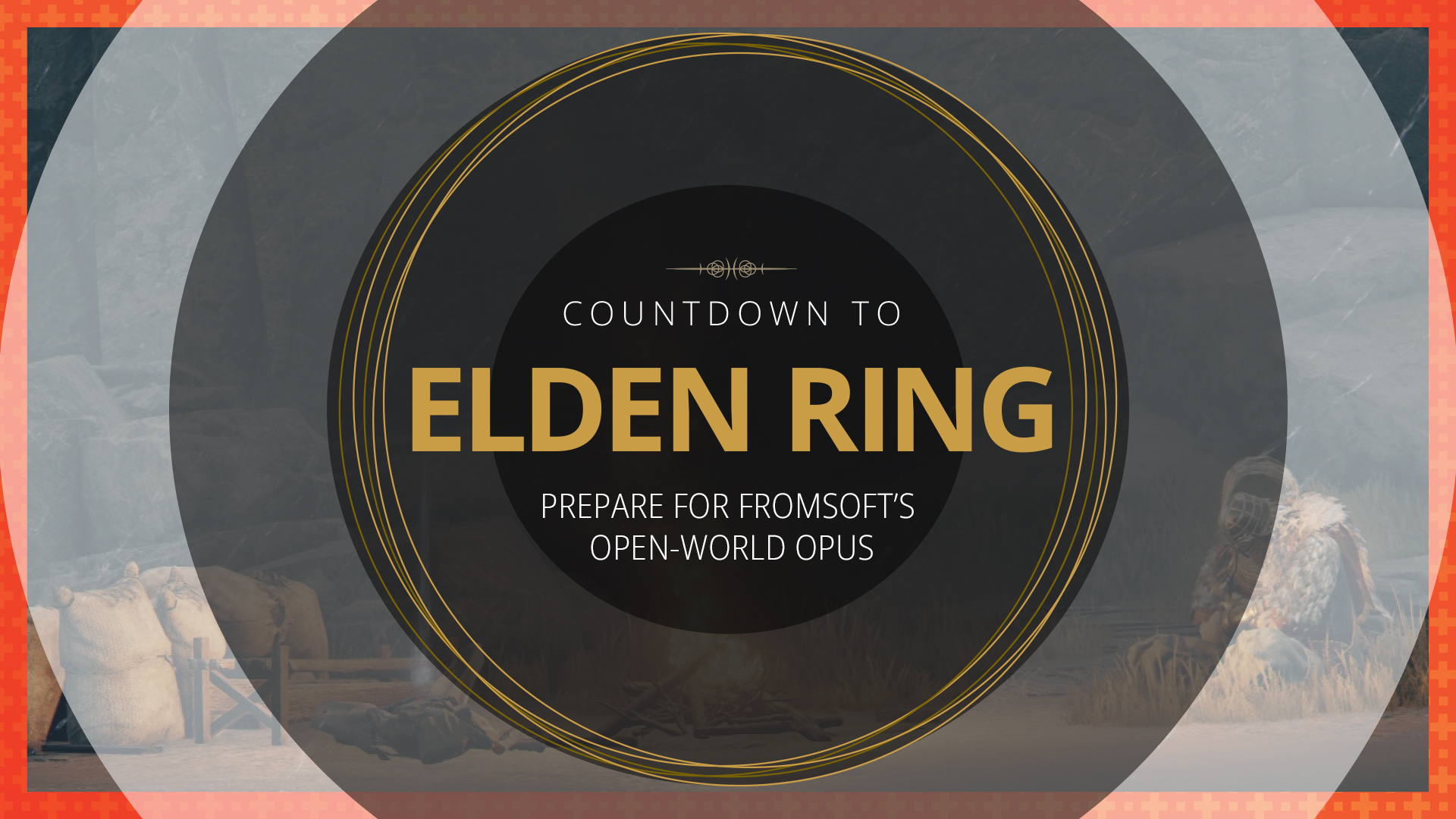
Jason Killingsworth is the co-author of You Died: The Dark Souls Companion, founder & creative director of Tune & Fairweather, and a former editor at Edge magazine and Paste.


